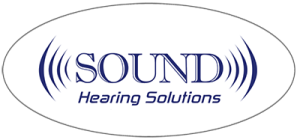A growing amount of research is providing evidence that hearing loss and cardiovascular disease are linked. How is it that our ears can be affected by our hearts? Cardiovascular disease causes decreased blood flow. Decreased blood flow in the body also affects the inner ear, which is particularly sensitive to blood flow. This can contribute to hearing loss.
A number of studies have also shown that decreased blood flow to the inner ear from cardiovascular disease can result in a low frequency hearing loss.
Since most hearing loss due to aging and noise exposure results in high frequency hearing loss, a hearing test may serve as an important screening tool for cardiovascular disease. In addition, an individual that has been diagnosed with cardiovascular disease can benefit from a hearing test to serve as a baseline to monitor the condition. Some researchers theorize that abnormalities in the condition of blood vessels in the inner ear could be noted earlier than in other areas of the body. Patients that are diagnosed with a low frequency hearing loss may benefit from appropriate referrals for potential cardiovascular conditions.
Research from the American Speech-Language-Hearing Association (ASHA) indicates that people with low levels of cardiovascular fitness are more likely to have poorer hearing sensitivity compared to people with a medium or high level of cardiovascular fitness. Hearing loss still occurs with age, but good hearing may be maintained for longer with higher levels of general fitness. This is thought to be because regular exercise results in blood that is packed with nutrients and proteins rather than being filled with cholesterol, fats, and sugar.
What could be a good first step? Get a hearing test! The National Institute on Deafness and Other Communication Disorders (NIDCD) has reported that only 38% of adults age 70 or older and only 29% of adults age 20 to 69 have had their hearing tested in the last 5 years. Using a hearing test as a way to monitor cardiovascular health could soon be another reason to schedule an appointment with an audiologist!
